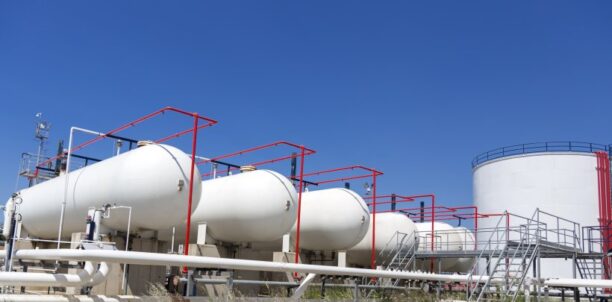U.S. Energy Department Seeks Input on Renewable Propane
The U.S. Department of Energy’s Bioenergy Technologies Office (BETO) is calling for insights with a new Request for Information (RFI) focusing on the production and uses of renewable propane. The RFI, coded as DE-FOA-0003389, invites input from industry experts, stakeholders, and companies engaged or interested in producing renewable propane. The goal is to explore innovative… Continue reading U.S. Energy Department Seeks Input on Renewable Propane
The U.S. Department of Energy’s Bioenergy Technologies Office (BETO) is calling for insights with a new Request for Information (RFI) focusing on the production and uses of renewable propane. The RFI, coded as DE-FOA-0003389, invites input from industry experts, stakeholders, and companies engaged or interested in producing renewable propane. The goal is to explore innovative production methods that could lead to sustainable aviation fuels and other significant products.
Propane, commonly used across the United States, is consumed at a rate of about one million barrels each day, making up around 1% of the nation’s total energy usage. Its applications are widespread, ranging from residential and commercial heating to industrial processes in the chemical and plastics sectors, and even extending to agricultural uses. Traditionally, propane has been a byproduct of natural gas processing and crude oil refining. However, the focus has recently shifted towards renewable sources, such as municipal waste, agricultural residues, forest resources, and biogenic fats, oils, and greases, presenting a new dimension to its production.
The RFI seeks detailed feedback on several fronts, particularly looking at the economic and environmental impacts of integrating renewable propane into existing refinery operations that process biogenic materials. This integration could potentially enhance the efficiency of these facilities by using the propane produced on-site as a form of process energy, rather than selling it separately in the propane market.
Questions in the RFI are grouped into two main areas:
1. Production of propane and other gaseous intermediates through the hydroprocessing of biogenic fats, oils, and greases.
2. Methods to produce these intermediates from sources like municipal waste, agricultural residue, and forest residues.
Impact on Propane Businesses
For businesses within the propane industry, this RFI represents a significant opportunity. Engaging with the DOE’s initiative could lead to partnerships and advancements in renewable energy technologies, potentially opening new markets and applications for propane products. By contributing to the development of sustainable propane production methods, companies can align themselves with growing environmental standards and consumer preferences for cleaner energy sources. Additionally, involvement in such federal initiatives can enhance a company’s visibility and credibility in both existing and emerging markets.

